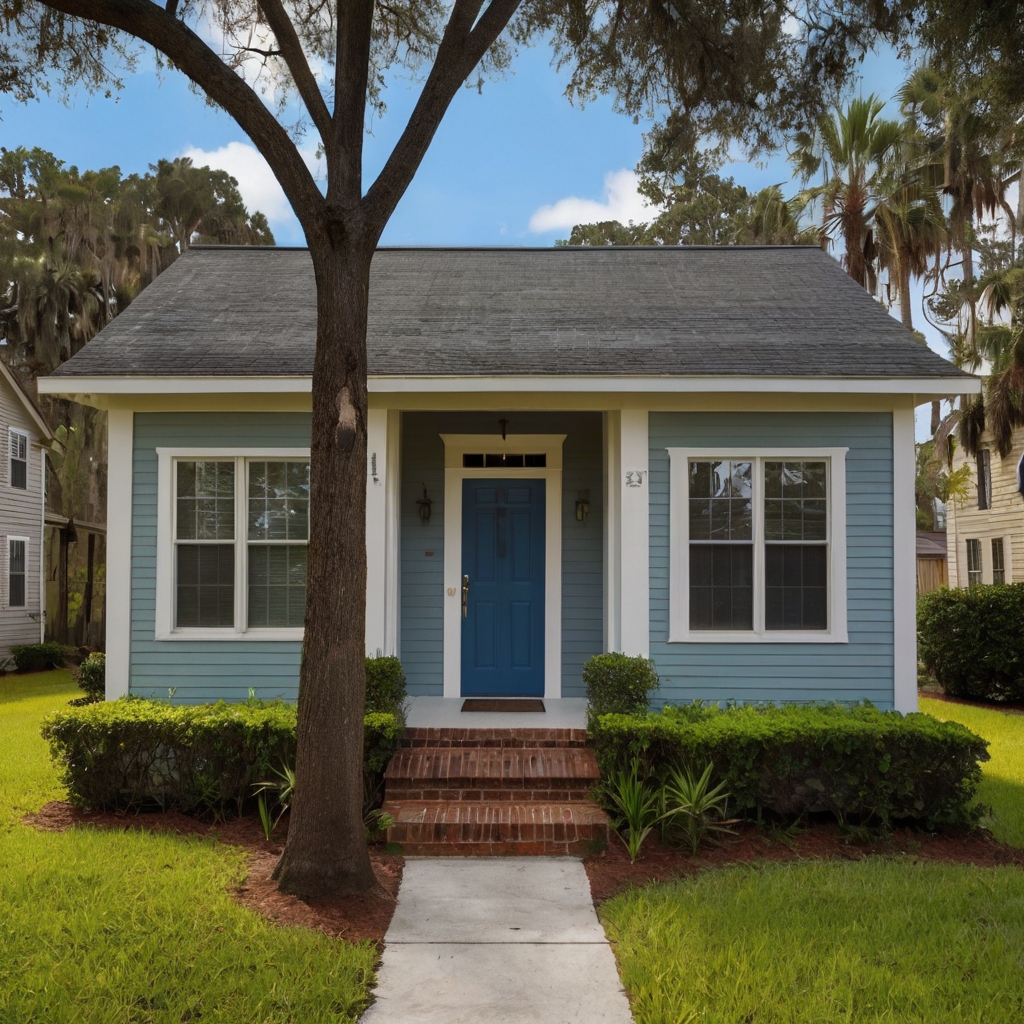Administrative fees for apartments vary from $50 to $500 based on rental markets and locations. Urban areas charge higher fees between $100 and $500. Rental properties in suburban locations typically ask between $50 and $200 for these rental costs.
Property management companies set different timelines to collect admin fees for apartments. These non-refundable charges cover application processing, credit checks, and lease preparation. Most properties collect payment after approving applications but before lease signing. Some rental companies might require payment at different points during the rental process.
This detailed guide covers everything renters should know about apartment administrative fees. Renters will learn about payment schedules, common policies, and practical tips to budget for these rental expenses.

Understanding Admin Fee Basics
Property management companies collect a one-time administrative fee to process rental applications and handle lease paperwork. This charge is different from other rental fees because it only pays for the paperwork needed to set up a rental agreement between landlords and tenants.
What is an administrative fee
Administrative fees play several roles in renting an apartment. These fees help cover application processing costs and make sure potential tenants get a proper evaluation. The charges pay for important verification steps like background checks, credit reports, and rental history checks. Property managers also use this money to keep apartment units ready and show properties to prospects.
Why landlords charge admin fees
We found that property managers need these fees to protect themselves when they take units off the market for possible tenants. The charges help them pay for:
- Application processing and tenant information checks
- Background and credit screening
- Lease preparation and move-in coordination
- Record keeping and paperwork management
These fees also help screen out people who aren’t serious about renting. Property managers spend a lot of time processing applications, so they need to recover these costs through admin charges.
Typical admin fee amounts
Admin fees can vary by a lot based on several factors. City properties usually charge between $100 and $500. Suburban properties tend to ask for $50 to $200, while rural areas might charge $25 to $100.
These amounts change based on:
- Location and local rules
- Property’s type and size
- Management company’s policies
- Market competition
Some states put limits on these fees. California says application fees can’t cost more than the actual processing costs. New York has set specific limits on rental charges too.
Big property management companies usually keep their admin fees the same across their properties. Small landlords might charge different amounts based on their costs and local market rates.
Each person in a group of applicants might need to pay separate admin fees. Some companies let groups pay just one fee together. Property owners should know that management fees for buildings with more than 10 units usually cost 4% to 7% of monthly rent.
Most admin fees aren’t refundable. Renters should read all fee policies carefully before paying anything. States like Texas and Georgia have special rules about when these fees must be returned.
Common Admin Fee Payment Timelines
Rental applications come with administrative fees at various points in the process. Renters should know when these payments are due so they can plan ahead and avoid surprises.
Before application submission
Most apartment complexes want you to pay the administrative fee right away with your rental application. Property managers usually accept these payments through:
- Money orders
- Online payment services
- Digital payment platforms
This upfront payment shows that applicants are serious about renting, which helps discourage people who might not qualify or aren’t really interested. Many property managers use these fees to pay for immediate costs like background checks and credit reports.
After application approval
Approved renters might need to pay extra administrative charges. The fees typically range from $50 to $350 when signing the lease. Management companies often put these charges toward:
- Processing final paperwork
- Setting up move-in dates
- Keeping tenant records
Some property managers apply these administrative fees to your first month’s rent. This practice changes between management companies, so you should read your lease terms carefully.
With security deposit
Administrative fee payments sometimes happen at the same time as security deposits. State laws say these payments work differently:
- Security deposits protect the lease and you can get them back
- Administrative fees cover processing and you can’t get them back
Big property management companies often collect these payments together, but individual landlords might want separate payments. New renters should know that administrative fees, unlike security deposits, don’t count toward:
- Future rent payments
- Property damages
- Lease termination costs
Property managers sometimes offer different payment options when multiple people apply. Each tenant can pay their own administrative fee, or the group can make one payment together. Some communities also offer payment plans based on:
- Rental market conditions
- Property location
- Management company policies
A few properties give partial refunds of administrative fees if they deny your application. This doesn’t happen often since most companies clearly state these charges are non-refundable. Renters who need financial help might find support through local housing organizations that sometimes provide money for application costs.
The quickest way to plan your finances is to ask for a detailed list of all required payments, including administrative fees, security deposits, and other move-in costs. Clear information helps you avoid confusion and budget correctly for each step of renting.

Payment Options for Admin Fees
Modern apartment complexes accept various payment methods for administrative fees. This setup works well for tenants and property managers alike. Residents can pick the method that best matches their priorities and situation.
Cash payments
About 40% of renters still use traditional methods like cash or money orders, despite the digital payment boom. Property managers follow strict rules when handling cash:
- They give dated receipts for each cash transaction
- They keep detailed payment records
- They follow security protocols for cash handling
Cash payments create several challenges for property management companies. These include security risks, manual entry mistakes, and the hassle of physical bank deposits. Many properties now work with cash payment partners that let tenants pay at nearby retail stores.
Digital payment methods
Digital payments lead the rental industry and make administrative fee processing easier. Recent data shows ACH (Automated Clearing House) transfers make up 64.8% of digital transactions. Debit and credit cards account for 22.4%.
Property management companies typically accept these digital options:
- Online portals and mobile apps
- Bank transfers and ACH payments
- Credit and debit card transactions
- Digital wallets (Apple Pay, Google Pay)
- Electronic check processing
Many property managers now blend payment processing with their management software to optimize administrative tasks. This setup helps with:
- Automatic payment tracking
- Up-to-the-minute financial monitoring
- Better record-keeping
- Improved payment security
Third-party services give properties more payment flexibility. Tenants can:
- Schedule recurring payments
- Set up installment plans
- Get payment reminders
- Track transaction history
ACH payments cost between $0.26 and $0.50 per transaction. Properties that cover these processing fees see higher digital payment adoption – 84.71% compared to 47% when residents pay the fees.
Many management companies now prefer electronic payments only. This choice comes with several benefits:
- Traceable payment records
- Quick dispute resolution
- Less risk of loss or theft
- Better accounting accuracy
Property managers’ online payment portals now connect directly to accounting systems. This connection offers:
- Automated record-keeping
- Easy tax preparation
- Quick lease renewals
- Better financial transparency
Payment flexibility matters more as rental markets change. Properties that offer multiple payment options see:
- Happier tenants
- Fewer late payments
- Better cash flow management
- More efficient operations
Property Management Company Policies
Property management companies set different policies for administrative fees based on their size and business model. These policies affect how tenants pay their fees.
Large vs small companies
Large property management companies use standard fee structures across their properties. They charge 8% to 12% of monthly rent as management fees. Their administrative fees range from $50 to $200. Companies with large portfolios justify higher prices through:
- Specialized expertise
- Standard processes
- Detailed tenant screening
- Advanced property management software
Small management companies have more flexible fee structures and adjust their rates based on market conditions. They usually charge 4% to 7% for properties with ten or more units. These firms are more willing to negotiate administrative fees, especially in markets with less competition.
Corporate housing policies
Corporate property management firms use structured administrative fee policies that change based on several factors. They charge $100 to $500 for administrative processing. Their fee structures cover:
- Setup fees of $300 for new accounts
- Monthly management fees of 8% to 12% from collected rent
- Project management fees of about 10% of project value
- Maintenance markup of 5% to 15%
Corporate entities use mixed fee models that combine percentage-based and flat-fee structures. This makes customization possible while keeping standard processes across their portfolio. They must put all fees, rates, and payment structures in writing before starting services.
Individual landlord requirements
Independent landlords have unique administrative fee policies that are different from corporate entities. These property owners’ requirements depend on:
- Property’s type and size
- Local market conditions
- Maintenance needs
- Tenant screening processes
Individual landlords usually charge administrative fees between $50 and $350. These fees cover essential services like:
- Application processing
- Background verification
- Credit report analysis
- Lease preparation
- Move-in coordination
Individual property owners show more flexibility with fee structures and often change their policies based on:
- Property’s location and condition
- Tenant qualifications
- Market competition
- Service scope
Some landlords include administrative fees in their property management agreements. These fees might cover extra services such as regular inspections, maintenance coordination, and tenant communication management. Some property owners credit administrative fees toward first month’s rent, but corporate entities rarely do this.
Planning Your Admin Fee Payment
Smart financial planning and good timing play a big role in managing apartment administrative fees. Future tenants need to set aside money for these non-refundable charges that usually cost between $50 to $200, among other moving costs.
Budgeting tips
You need to know all your upfront costs to plan your finances well. A detailed budget helps you avoid money problems later. Here are the key expenses to think over:
- First month’s rent plus security deposit
- Application fees ranging from $25 to $100
- Pet deposits between $200 to $500 per pet
- Monthly pet rent between $25 to $100
- Moving expenses and transportation costs
Administrative fees add up quickly with other rental costs, so saving early makes sense. Here’s what you can do to handle these expenses better:
- Research local fee regulations
- Compare fees across multiple properties
- Ask about payment plan options
- Keep emergency savings for surprise charges
Many property managers let you split bigger expenses into smaller payments. Some communities might even apply your administrative fees toward your first month’s rent if you qualify.
When to have money ready
The right timing of payments matters a lot. You’ll need to pay administrative fees:
- When you submit rental applications
- Before managers review your application
- To hold an apartment
- Before starting background checks
Most properties want you to pay administrative fees through:
- Money orders
- Online payment platforms
- Digital banking services
Good record-keeping helps protect you. Make sure you:
- Track all your payments
- Get receipts for everything
- Write down payment dates and methods
- Keep copies of money-related emails
Knowing refund rules protects your money. Administrative fees usually don’t come back, but there are exceptions:
- If your application gets rejected
- When properties become unavailable
- Based on state laws
- Different management policies
Here’s what smart renters do:
- Save money months before moving
- Check typical fees in their target areas
- Keep moving money separate
- Build up emergency savings
Property managers often prefer digital payments or money orders. Knowing their priorities helps avoid delays.
Some companies hold administrative fees until they clear. This shows why you need money ready when you start looking for rentals.
Think about these timing factors too:
- How long applications take
- Background check processing
- When units become available
- Planning your move-in date
Be ready for extra costs like:
- Credit check fees
- Background verification charges
- Document processing expenses
- Move-in coordination costs
Talk openly with property managers about payment expectations and timing. Understanding local rules about administrative fees helps you avoid paying too much and plan better.
Administrative fees remain a key but manageable part of renting an apartment. Costs usually fall between $50 and $500, and tenants can handle these expenses with proper planning.
Smart renters should check local fee structures and payment rules before they start looking for apartments. A clear understanding of payment schedules helps allocate money for administrative fees among other moving costs. Each property management company’s specific requirements determine when these fees must be paid.
Digital payments now reshape the rental scene by providing secure and easy transactions for tenants and property managers alike. Most properties still accept traditional payment methods, which lets renters choose based on their priorities.
Finding the right apartment needs advance planning and a clear picture of all costs involved. Tenants who plan ahead, keep good records, and talk openly with property managers create smooth rental experiences. Knowledge about fees, payment timing, and budget planning helps renters search for apartments with confidence.
Some FAQs about when do you pay the admin fee for apartments:
What is the reason for admin fee?
The reason for an admin fee is to cover the costs associated with processing applications, paperwork, and administrative tasks. For apartments, this fee often includes background checks, credit reports, and lease preparation. Understanding the admin fee meaning helps tenants know what they are paying for.
What does an admin fee cover?
An admin fee typically covers the costs of processing applications, conducting background checks, and preparing lease agreements. In the context of apartments, it may also include credit checks and administrative overhead. Knowing what is the admin fee for apartments ensures transparency in rental transactions.
What is the admin processing fee?
The admin processing fee is a charge for handling the administrative tasks related to an application or transaction. For apartments, this includes processing rental applications, conducting checks, and preparing documentation. This fee is often non-refundable, even if the application is denied.
What is admin fee charge?
An admin fee charge is a cost imposed to cover administrative expenses related to a service or transaction. In apartment rentals, it includes tasks like application processing, background checks, and lease preparation. Understanding when do you pay the admin fee for apartments is crucial for budgeting.
What is an example of admin fee?
An example of an admin fee is the charge levied by landlords or property managers to process a rental application. This fee covers costs like background checks, credit reports, and administrative tasks. Knowing if apartment admin fee refundable if denied is important for applicants.
What does admin cost mean?
Admin cost refers to the expenses incurred for administrative tasks such as paperwork, processing, and management. In apartment rentals, this includes application processing, background checks, and lease preparation. Understanding admin fee meaning helps clarify these charges.
How is admin fee calculated?
Admin fees are typically calculated based on the actual costs of administrative tasks, such as background checks, credit reports, and paperwork. For apartments, the fee is often a flat rate to cover these expenses. Knowing what is the admin fee for apartments helps tenants understand the charges.
What is an annual admin fee?
An annual admin fee is a yearly charge to cover ongoing administrative costs, such as account maintenance or management services. In apartment rentals, this could include annual lease renewals or administrative overhead. Understanding admin fee meaning ensures clarity in long-term costs.
What is a reasonable administration charge?
A reasonable administration charge covers the actual costs of administrative tasks without excessive profit. For apartments, this typically ranges from 50to200, depending on the complexity of the process. Knowing when do you pay the admin fee for apartments helps tenants budget effectively.
What is a list of admin cost?
A list of admin costs includes expenses like application processing, background checks, credit reports, and lease preparation. For apartments, these costs are often bundled into a single admin fee. Understanding what is the admin fee for apartments ensures transparency in rental transactions.
What are policy administration charges?
Policy administration charges are fees associated with managing and maintaining policies, such as insurance or rental agreements. In apartments, this could include costs for lease management and administrative tasks. Knowing admin fee meaning helps clarify these charges for tenants.




